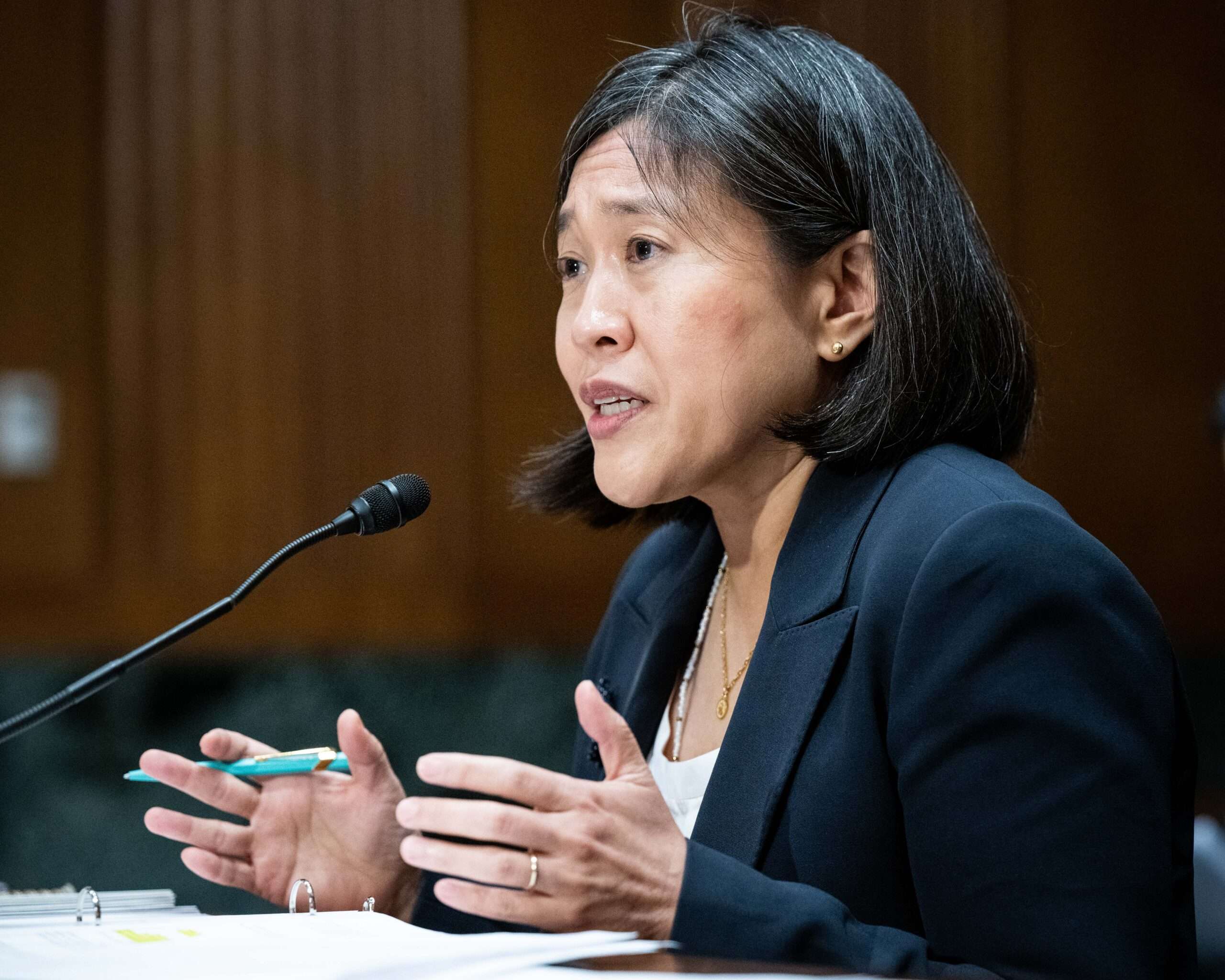Biden’s Chief Trade Official Acknowledges Tariffs Have Not Altered China’s Conduct
During the 2020 presidential campaign, Joe Biden criticized Donald Trump’s decision to impose tariffs on a wide array of goods imported from China, labeling them detrimental to American consumers and businesses. However, once Biden assumed office, he not only kept these tariffs in place but also expanded them. This apparent contradiction raised questions about the effectiveness and rationale behind these tariffs. In a response to these concerns in 2022, U.S. Trade Representative Katherine Tai stated that the administration viewed the tariffs as essential “leverage” in negotiations with China, deeming them integral to a strategy aimed at enhancing American competitiveness and defending national interests amidst China’s growing global influence. The administration’s position appeared contradictory, as it maintained the tariffs while understanding that they had failed to prompt any meaningful changes in China’s trade practices.
As time has progressed, the Biden administration has not made significant strides in altering China’s systemic structural trade policies. Tai recently reiterated in an interview that, despite the continuing imposition of tariffs, there have been no substantial modifications from the People’s Republic of China that would justify a relaxation of these measures. She lamented that currently, no active negotiations are taking place between the U.S. and China, casting doubt on the practical utility of the tariffs. Despite acknowledging that tariffs have not achieved their intended goals, Tai remains firm in her belief that they could somehow serve as leverage for future negotiations. This assertion raises concerns about the rationality of maintaining costly tariffs that are purportedly valuable, yet have not produced tangible benefits for American families and businesses.
Deciding to maintain these tariffs, despite their demonstrable failures, has resulted in significant financial repercussions. According to analyses from the Tax Foundation, the tariffs imposed on Chinese imports have cost American consumers and businesses upwards of $200 billion from the onset of Trump’s trade war up to March 2024. Even as Tai admits the tariffs have yet to yield concrete results, American households are still left to bear the burden of these misguided economic strategies. This unfortunate reality reflects a misguided reliance on tariffs as a tool for achieving broader economic objectives, illustrating a disconnect between theory and practice.
Critically, the original premise of Trump’s tariffs posited that they would induce multinationals to relocate from China, yet research conducted by the University of Kansas and the University of California, Irvine, revealed the exact opposite trend—the number of multinational firms operating in China actually grew in 2019. Additionally, the perceived benefits of the “Phase One” trade deal, which Trump claimed would rectify numerous trade injustices, have failed to materialize, further complicating the narrative surrounding tariffs as a corrective measure. Such findings underscore a significant shortfall in the anticipated economic benefits, as tariffs have not only failed to stimulate job growth in manufacturing but have also done little to alleviate the trade deficit.
The Biden administration initially committed to competent management of the existing trade strategies following Trump’s presidency; however, it has largely perpetuated the status quo without implementing any meaningful reforms. The sustenance of these tariffs not only hindered responses to other economic challenges, such as the COVID-19 pandemic but also further exacerbated inflationary pressures as supply chains struggled. It has become increasingly evident that continuing the reliance on tariffs is not a viable solution to trade issues. Instead, a shift in thinking toward alternative approaches—ones that do not hinge on punitive tariffs—might be necessary to bolster the U.S. economy.
Ultimately, a reevaluation of the applicability of tariffs as a tool for economic progress remains crucial. Even Katherine Tai’s recent acknowledgments reveal a recognition of the inherent failures of this approach. The persistence of tariffs, both under Trump and Biden’s administrations, reinforces the notion that they do not operate as effective leverage in trade relations but have instead devolved into a system that primarily raises tax revenues from American consumers. Moving forward, a shift in policy that favors creative, pragmatic trade solutions rather than reliance on punitive tariffs might be essential to ensuring a more robust economic future for the United States. If Vice President Kamala Harris were to assume leadership, her stated endorsement of the Biden administration’s current practices raises further concerns that the same ineffective tariff strategy could continue, hampering the exploration of new possibilities in trade policy management.
Share this content:












Post Comment